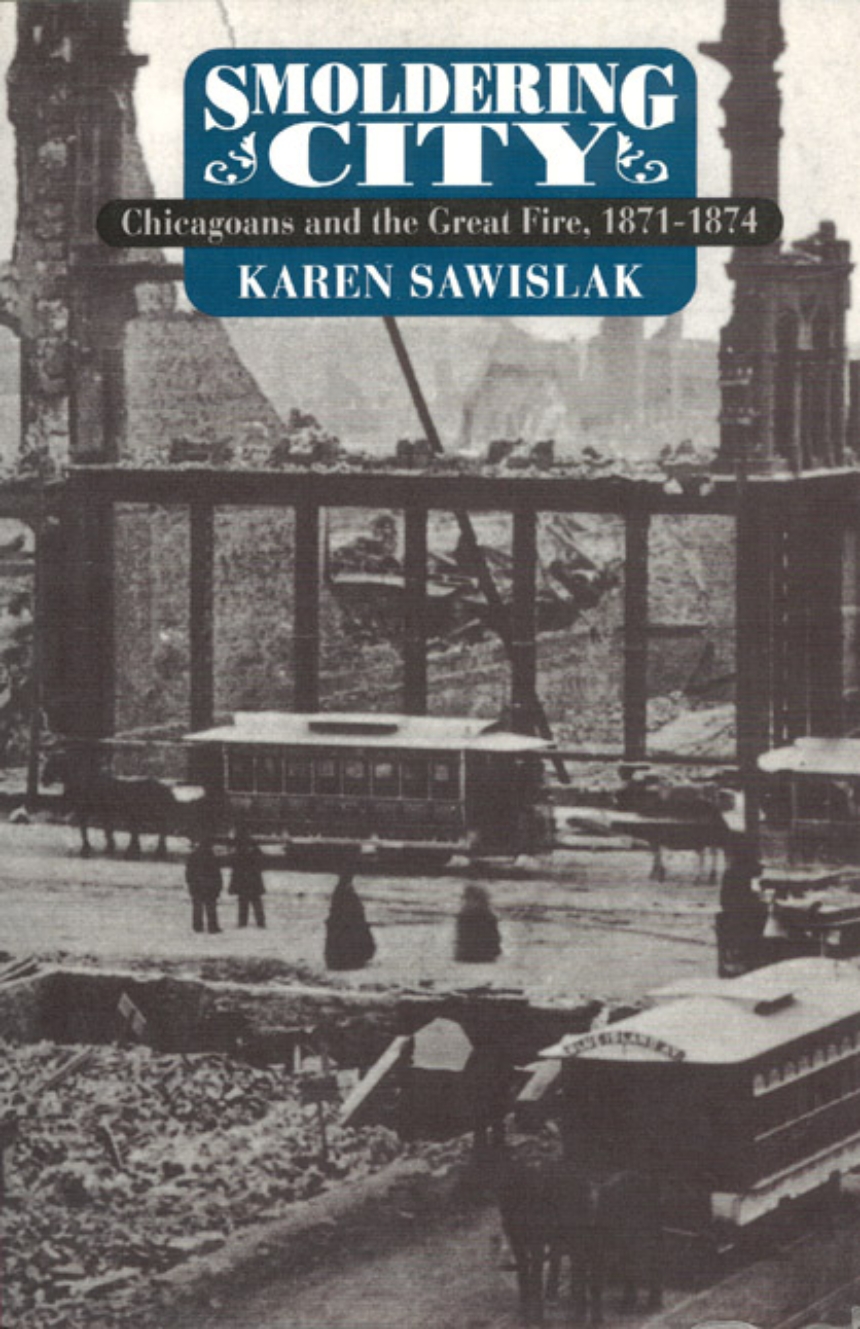Smoldering City
Chicagoans and the Great Fire, 1871-1874
The fateful kick of Mrs. O’Leary’s cow, the wild flight before the flames, the astonishingly quick rebuilding—these are the well-known stories of the Great Chicago Fire of 1871. But as much as Chicago’s recovery from disaster was a remarkable civic achievement, the Great Fire is also the story of a city’s people divided and at odds. This is the story that Karen Sawislak tells so revealingly in this book.
In a detailed account, drawn on memoirs, private correspondences, and other documents, Sawislak chronicles years of widespread, sometimes bitter, social and political conflict in the fire’s wake, from fights over relief soup kitchens to cries against profiteering and marches on city hall by workers burned out of their homes. She shows how through the years of rebuilding the people of Chicago struggled to define civic order—and the role that "good citizens" would play within it. As they rebuilt, she writes, Chicagoans confronted hard questions about charity and social welfare, work and labor relations, morality, and the limits of state power. Their debates in turn exposed the array of values and interests that different class, ethnic, and religious groups brought to these public discussions.
"Sawislak combines the copious detail of a historian with the vivid portrayals of a storyteller in her investigation of the infamous Chicago fire. . . . Highlighted by historical maps, plates and engravings, with an epilogue and notes, Smoldering City presents an extremely thorough and engaging study of this extraordinary disaster."—Publishers Weekly
In a detailed account, drawn on memoirs, private correspondences, and other documents, Sawislak chronicles years of widespread, sometimes bitter, social and political conflict in the fire’s wake, from fights over relief soup kitchens to cries against profiteering and marches on city hall by workers burned out of their homes. She shows how through the years of rebuilding the people of Chicago struggled to define civic order—and the role that "good citizens" would play within it. As they rebuilt, she writes, Chicagoans confronted hard questions about charity and social welfare, work and labor relations, morality, and the limits of state power. Their debates in turn exposed the array of values and interests that different class, ethnic, and religious groups brought to these public discussions.
"Sawislak combines the copious detail of a historian with the vivid portrayals of a storyteller in her investigation of the infamous Chicago fire. . . . Highlighted by historical maps, plates and engravings, with an epilogue and notes, Smoldering City presents an extremely thorough and engaging study of this extraordinary disaster."—Publishers Weekly
An excerpt from chapter one gives a brief account of the Great Chicago Fire.
Visit the Great Chicago Fire and the Web of Memory a website created by the Chicago Historical Society in commemoration of the 125th anniversary of the Great Chicago Fire.
Visit the Great Chicago Fire and the Web of Memory a website created by the Chicago Historical Society in commemoration of the 125th anniversary of the Great Chicago Fire.
403 pages | 15 halftones, 1 map | 6 x 9 | © 1995
Historical Studies of Urban America
History: American History, Urban History
